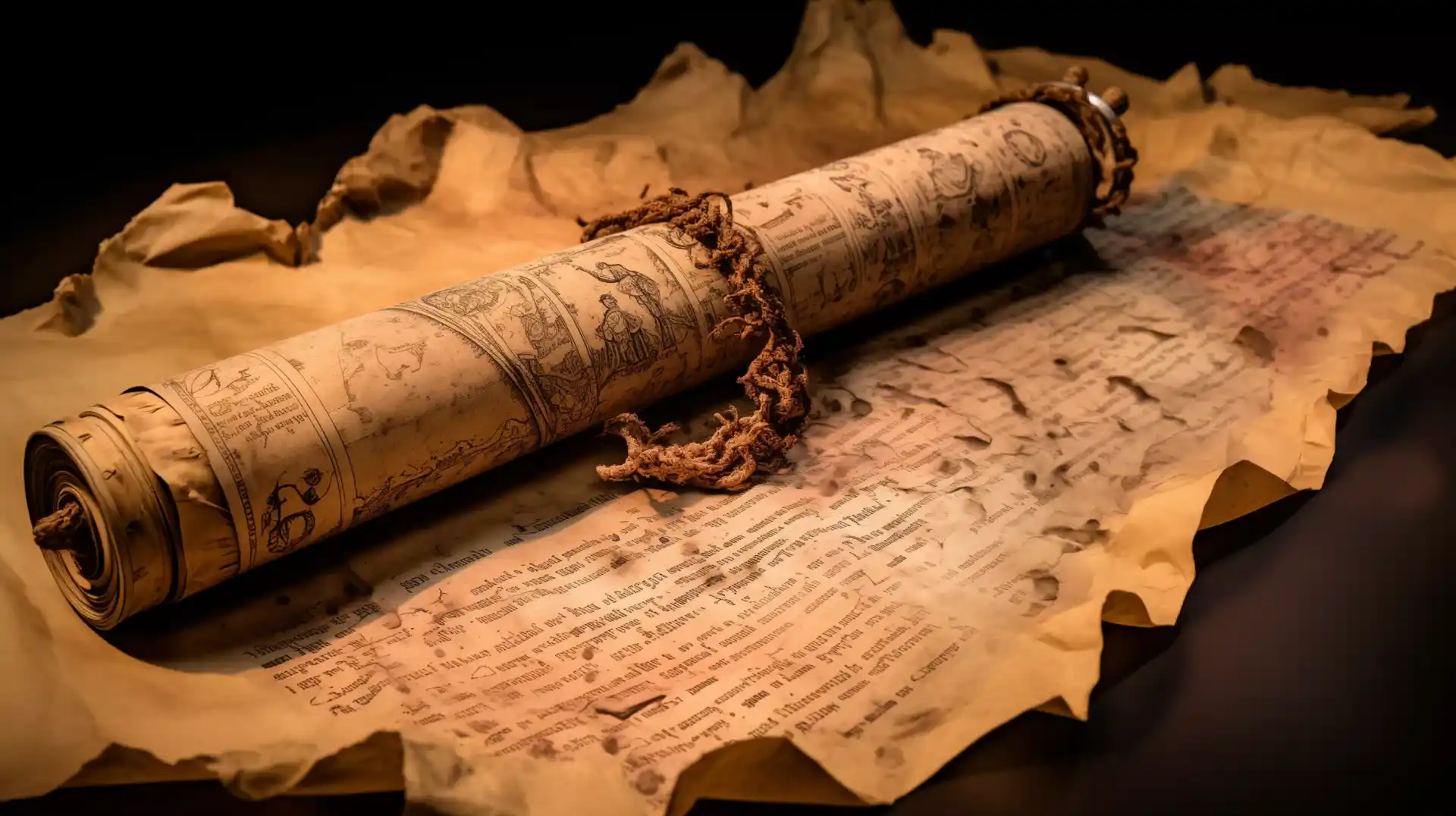Table of Contents
AI deciphered scroll: a breakthrough in papyrology
A 2,000-year-old scroll that survived the eruption of Mount Vesuvius in 79AD has been read for the first time using artificial intelligence (AI). The scroll, which was charred and buried in the Roman town of Herculaneum, contains insights into ancient Greek philosophy and the sources of pleasure in life.
The scroll is part of a collection of hundreds of papyrus scrolls that were found in the library of a luxurious villa that belonged to Julius Caesar’s father-in-law. The villa was the home of the Greek philosopher Philodemus, who followed the teachings of Epicurus and wrote about music, poetry, ethics, and politics.
The scrolls are the only surviving library of texts from ancient Roman times, but they have been unreadable for centuries. The volcanic ash that preserved them also made them brittle and fragile, and any attempt to unroll them would cause them to crumble.
However, a team of three students from different fields of technology came up with a solution that won them a $700,000 prize. They used AI to decipher the black carbon ink on the papyrus, which was invisible to the human eye, and conventional scanning methods.

How AI deciphered scroll using pattern recognition
The students, Youssef Nader, Luke Farritor, and Julian Schillinger, built an AI model that used pattern recognition to identify the letters and words on the scroll. They applied their model to one of the four scrolls that were scanned by Dr Brent Seales and his team at the University of Kentucky using high-resolution CT scans.
The model was able to read 2,000 Greek characters, which is only 5% of the text, but enough to reveal the topic and the style of the author. The scroll discusses the nature of pleasure and happiness and mentions music and food as examples. In one passage, the author questions whether scarce things are more pleasant than abundant ones.
The AI model used a deep learning technique called convolutional neural networks (CNNs), which are inspired by the way the human brain processes visual information. CNNs can learn to recognize patterns and features in images, such as edges, shapes, and colors. The model was trained on thousands of images of ancient Greek texts and then tested on the scroll images.
The model was able to distinguish the ink from the background and segment the text into lines, words, and letters. It then matched the letters to a Greek alphabet and reconstructed the words and sentences. The model also corrected some errors and gaps in the text, using context and grammar rules.
What the AI deciphered scroll reveals about ancient Greek philosophy
Dr Federica, a papyrology researcher at the University of Naples, said that the AI deciphered scroll is a “revolution” in Greek philosophy, as it opens up new possibilities for understanding the thoughts and culture of the ancient world. She hopes that the technology can be used to read more scrolls in the future, and eventually all 800.
The AI deciphered scroll belongs to a genre of philosophical literature called “On Choices and Avoidances”, which deals with the ethical question of how to live a good life. The author, who is most likely Philodemus, follows the Epicurean school of thought, which advocates a life of moderation, friendship, and pleasure.
The scroll also shows the influence of music and poetry on Philodemus, who was a poet himself and a friend of the famous Roman poet Virgil. Philodemus argues that music and poetry can enhance the pleasure of life, as long as they are not excessive or distracting. He also compares the pleasures of food and drink and suggests that scarcity does not necessarily increase pleasure, but rather depends on the quality and quantity of the food.
The scroll is a valuable source of information about the history of philosophy, as it sheds light on the development and transmission of Epicurean ideas from Greece to Rome. It also reveals the intellectual and cultural life of the elite in Herculaneum, who were interested in philosophy, literature, and art. The scroll is a testimony of the rich and diverse legacy of the ancient world, which was almost lost to the flames of Vesuvius.